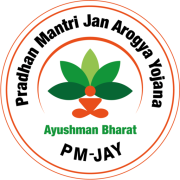Our Highly Experienced Orthopaedic team has expertise in Diagnosis and Treatment of various Complex Ortho disorders including Limb Surgery, Trauma, Bone Diseases and other Complex Congenital conditions.
SVCA provides comprehensive and world-class orthopaedic services. This department offers specialized care in the field of complex trauma, poly-trauma and related sub-specialities. The Orthopaedic department at our hospitals delivers personalised care utilising the latest research and evidence-based medicine. The department provides management related to disorders of bone, joint and a variety of musculoskeletal disorders.
Orthopedic doctors (sometimes also called orthopaedic doctors or orthopaedic surgeons) at SVCA focus on caring for your bones, joints, ligaments, nerves, and tendons. These parts of your body work together as musculoskeletal system. Orthopedic doctors assist patients in:
- Diagnosing and treating injuries caused by sports or physical activity;
- Management of conditions that usually get worse over age & time, such as osteoarthritis or osteoporosis
- help you avoid pain and discomfort when using a muscle or joint.
Some of the procedures that we take care are Joint, Total Knee replacement, Hip and Shoulder replacement, Arthritis and custom implant surgeries. Arthroscopy, knee, shoulder and ankle arthroscopy, recurrent shoulder dislocation, rotator cuff repair, subacromial decompression, Msaicrominal and articular cartilage implantation are some of the other procedures done routinely.
SVCA’s orthopaedic department has a team of trained surgeons. In addition, efficient occupational therapists, physiotherapists and pain management experts work towards the quick rehabilitation of the patient leading to a better quality of life.
ORTHOPAEDIC TREATMENT
Orthopaedic surgeons deal with the problems of the musculoskeletal system, which may involve the following:
- Diagnosis of the injury or disorder
- Prescribing treatments with medication, exercise, surgery, casting, etc.
- Rehab Centres or physical therapy to restore adequate movement, strength and function
- Preventing further injury and slowing the progression of diseases
Apart from the diseases and conditions of the musculoskeletal system, orthopaedics can also specialise in certain other areas like the spine, shoulder, hand, foot, ankle, hip or knee. Specific fields that they may choose to focus on include paediatrics, trauma or sports medicine.
DIAGNOSIS
The first thing that an orthopaedic surgeon will do before performing a physical examination is to ask about the history of illness or injury. They will then move forward to diagnostic studies, such as x-rays and blood tests. After the diagnosis and informing the patient about the problem, they will come up with a treatment plan to help them live an active and functional life. The treatment can either be nonsurgical or surgical.
NONSURGICAL TREATMENT
Certain musculoskeletal conditions can be treated without surgery. Orthopaedic surgeons can prescribe a treatment that involves medication, exercise, rehabilitation or alternative therapies. In cases when patients don’t respond to nonsurgical treatments, they recommend going for surgery.
SURGICAL TREATMENT
There are several types of surgeries that an orthopaedic surgeon can perform. Some of the common procedures include:
- Arthroscopy: This procedure uses special cameras and equipment to visualise, detect and treat conditions inside a joint.
- Joint replacement: Joint replacement can be a partial, total or revision surgical treatment. In this surgery, an arthritic or damaged joint is removed and replaced with an artificial joint called a prosthesis.
- Fusion: It involves fusing bones with bone grafts and internal devices like metal rods to heal into a single solid bone.
- Osteotomy: Cutting and repositioning the bone to correct bone deformity
- Internal fixation: This method involves using metal plates, pins or screws to hold the broken pieces of bone in a proper position.
WHEN SHOULD YOU SEE AN ORTHOPAEDIC DOCTOR?
Muscle and joint pain are often short-term and go away on their own if you had them during an injury. But if your pain lasts more than 3-5 days, you may need to consult us, if:
- you are finding it difficult to move as you used to do before injury.
- you are unstable when you walk or stand, or you have a hard time doing daily activities, like walking.




